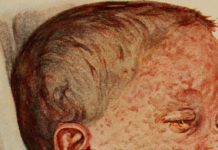
Scientists stumble upon a new treatment for baldness
Although it’s normal to lose about 100 strands of hairs from your scalp every day, excessive hair loss may lead to baldness. But a drug originally developed to treat osteoporosis may soon help those who want to treat or even reverse baldness.
Researchers found the drug had a dramatic effect on hair follicles in the lab, stimulating them to grow. It contains a compound which targets a protein responsible for baldness.
Currently, only two drugs are available to treat baldness:
- Minoxidil: For women and men
- Finasteride: For men only
Both have side-effects and are not very effective, so patients often opt for hair transplant.
How the new drug was found
The path to finding this new compound began with an immuno-suppressive drug, Cyclosporine A, that has been used since the 1980s to treat patients undergoing transplant surgery or struggling with autoimmune diseases like osteoporosis.
Cyclosporine A has some severe side effects, including diarrhoea and convulsions, still some patients have experienced something quite unusual: unwanted hair growth.
Researchers from the Centre for Dermatology Research, University of Manchester decided analyze the drug’s potential as a remedy to baldness by analyzing the drug’s impact on gene expression.
They found that Cyclosporine A limits a certain protein (commonly known as SFRP1) that inhibits hair growth. When the protein is blocked, acute hair growth occurs.












